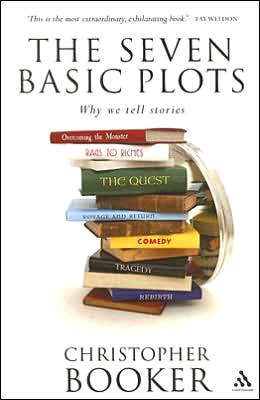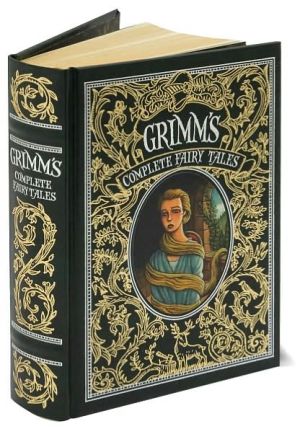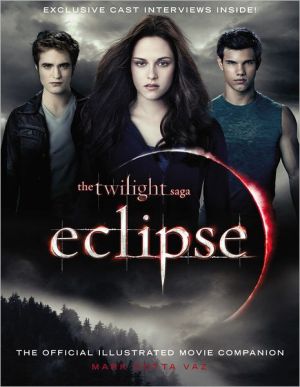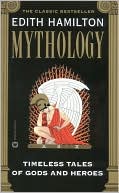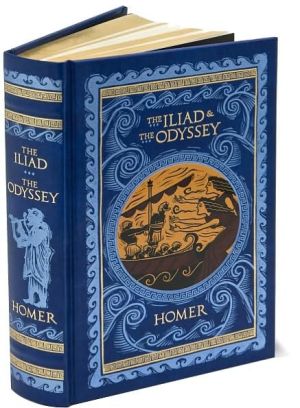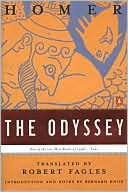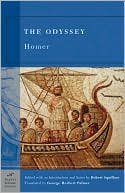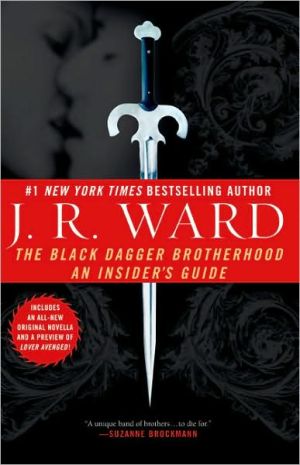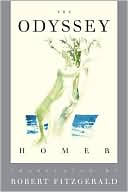The Seven Basic Plots: Why We Tell Stories
This remarkable and monumental book at last provides a comprehensive answer to the age-old riddle of whether there are only a small number of 'basic stories' in the world. Using a wealth of examples, from ancient myths and folk tales via the plays and novels of great literature to the popular movies and TV soap operas of today, it shows that there are seven archetypal themes which recur throughout every kind of storytelling.\ But this is only the prelude to an investigation into how and why...
Search in google:
In this arduous undertaking, 34 years in the making, Booker attempts to the tell the story of all stories, from Beowulf to The Texas Chainsaw Massacre. Referring to every genre, including folktales, films, operas and soap operas, Booker describes seven basic plots, which he contends share basic character types and present different views of the same central preoccupation. He then discusses the shift in the last 200 years to darker and less satisfactory endings, a move he deplores, preferring instead stories such as The Lord of the Rings in which all seven plots are combined in a single narrative. Booker concludes that the propensity to tell stories that conform to the basic plots is essential to human psychology. Annotation ©2004 Book News, Inc., Portland, OR The New York Times - Michiko Kakutani In laying out these archetypes, Mr. Booker - a British newspaper columnist and the founding editor of the satirical magazine Private Eye - does a nimble job of collating dozens of stories, using the 34 years he says it took him to write this volume to identify and explicate all sorts of parallels and analogies that might not occur to the casual reader. He shows us how "The Terminator" and its sequel "Judgment Day" adhere to traditional narrative tropes, moving inexorably if violently toward the ideas of rebirth and redemption. And he reminds us how the movie "E.T." embodies classic coming-of-age-story patterns: the boy hero Elliott's encounter with E.T., his alien alter ego, helps him to grow up, forces him to demonstrate leadership, and enables him to bring new harmony to his fragmented family.
Ch. 1Overcoming the monster21Ch. 2The monster (II) and the thrilling escape from death31Ch. 3Rags to riches51Ch. 4The quest69Ch. 5Voyage and return87Ch. 6Comedy107Ch. 7Comedy (II) : the plot disguised131Ch. 8Tragedy (I) : the five stages153Ch. 9Tragedy (II) : the divided self173Ch. 10Tragedy (III) : the hero as monster181Ch. 11Rebirth193Ch. 12The dark power : from shadow into light215Epilogue to part one : the rule of three (the role played in stories by numbers)229Ch. 13The dark figures241Ch. 14Seeing whole : the feminine and masculine values253Ch. 15The perfect balance267Ch. 16The unrealised value277Ch. 17The archetypal family drama289Ch. 18The light figures297Ch. 19Reaching the goal311Ch. 20The fatal flaw329Ch. 21The ego takes over (I) : enter the dark inversion347Ch. 22The ego takes over (II) : the dark and sentimental versions367Ch. 23The ego takes over (III) : quest, voyage and return, comedy385Ch. 24The ego takes over (IV) : tragedy and rebirth399Ch. 25Losing the plot : Thomas Hardy - a case history413Ch. 26Going nowhere : the passive ego : the twentieth-century dead end - from Chekhov to Close encounters425Ch. 27Why sex and violence? : the active ego : the twentieth-century obsession : from de Sade to The terminator455Ch. 28Rebellion against 'the one' : from Job to Nineteen eighty-four495Ch. 29The mystery505Ch. 30The riddle of the sphinx : Oedipus and Hamlet517Ch. 31Telling us who we are : ego versus instinct543Ch. 32Into the real world : the ruling consciousness571Ch. 33Of Gods and men : reconnecting with 'the one'593Ch. 34The age of Loki : the dismantling of the self645Epilogue : the light and the shadows on the wall699
\ Denis DuttonBooker, a British columnist who was founding editor of Private Eye, possesses a remarkable ability to retell stories. His prose is a model of clarity, and his lively enthusiasm for fictions of every description is infectious. He covers Greek and Roman literature, fairy tales, European novels and plays, Arabic and Japanese tales, Native American folk tales, and movies from the silent era on. He is an especially adept guide through the twists and characters of Wagner's operas. His artfully entertaining summaries jogged many warm memories of half-forgotten novels and films.\ — The Washington Post\ \ \ \ \ Michiko KakutaniIn laying out these archetypes, Mr. Booker - a British newspaper columnist and the founding editor of the satirical magazine Private Eye - does a nimble job of collating dozens of stories, using the 34 years he says it took him to write this volume to identify and explicate all sorts of parallels and analogies that might not occur to the casual reader. He shows us how "The Terminator" and its sequel "Judgment Day" adhere to traditional narrative tropes, moving inexorably if violently toward the ideas of rebirth and redemption. And he reminds us how the movie "E.T." embodies classic coming-of-age-story patterns: the boy hero Elliott's encounter with E.T., his alien alter ego, helps him to grow up, forces him to demonstrate leadership, and enables him to bring new harmony to his fragmented family.\ — The New York Times\ \ \ Publishers WeeklyMany writing guides have suggested that fiction contains a limited number of basic plots, and Booker offers his version at great length. Furthermore, he claims all of these plots, from "overcoming the monster" to "rebirth," are variations on "the same great basic drama," a Jungian archetypal representation of the development and integration of the mature self. The meticulous detailing of this theory in plot summaries (of everything from Beowulf to Jaws, ancient comedy to modern tragedy, Western culture and Eastern) is an imposing enough task, but Booker is just warming up. In the book's second half, he explains how the psychological shortcomings of modern authors such as Shaw and Joyce led them to reject archetypal truth in favor of writing out their own sentimental and morbid fantasies. The biographical analysis is simplistic, however, and Booker makes numerous errors in the sections on film. The transition from literary criticism to Jungian psychology might be more bearable were it not saddled with an overabundance of academic clich surprising in a writer of Booker's extensive journalistic background (he now contributes to England's Daily Telegraph). Clearly striving for the intellectual respectability of Northrop Frye, he falls far short, and accusing those who disagree with him of suffering from "limited ego-consciousness" doesn't help his case. (Apr.) Copyright 2005 Reed Business Information.\ \ \ \ \ Library JournalBooker, a regular contributor to the Sunday Telegraph and the Daily Mail, began work on this massive book over 30 years ago. It is an impressive achievement, in both its vast scope and its readability. Exploring all genres of storytelling-from the Bible and recurring folktales to high and low literature, as well as plays and movies-Booker manages to incorporate the work of such great minds as Dr. Johnson, Jung, and Freud without ever sounding dry. His treatment of the evolution of comedy (a genre notably resistant to explication) since ancient Greek plays is excellent. The third, very interesting chapter offers stories that fail to satisfy our often nebulous sense of good storytelling, showing precisely how and where they fail. Geared more to undergraduates than graduates, this useful overview will prove valuable to writers as well as scholars. Highly recommended for academic libraries, especially those supporting a literature and/or film studies program.-Felicity D. Walsh, Emory Univ., Decatur, GA Copyright 2005 Reed Business Information.\ \
